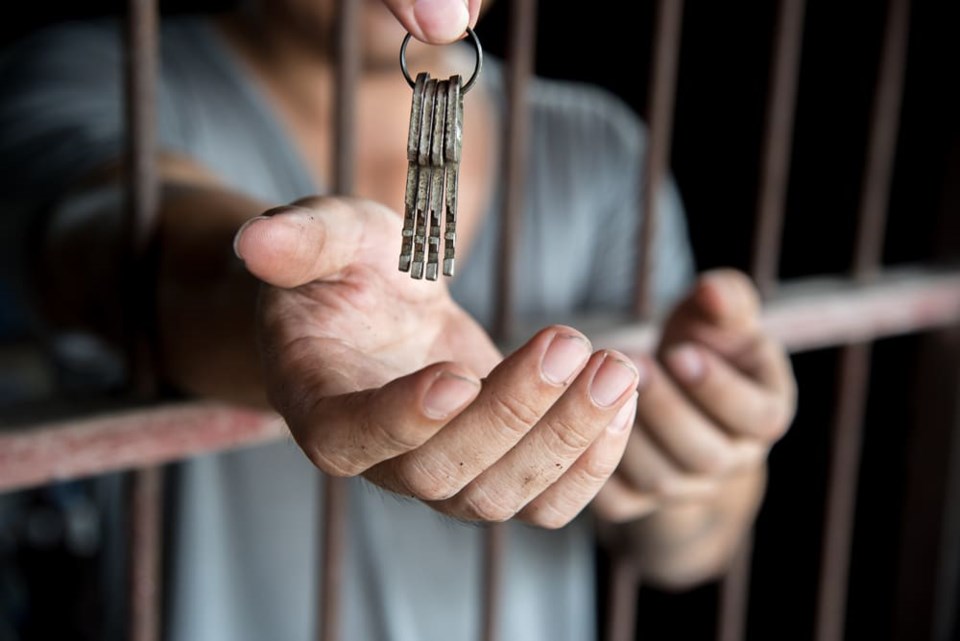
About two years ago, Jerry DeCroo was sitting in his office in the Collin County courthouse when he got a call from the front desk. A young probationer had arrived for a drug test, and DeCroo’s front desk colleagues, usually unfazed, were scared. The offender was 24, with a menacing look befitting his background as a gang member. A recent move from Los Angeles brought the offender into DeCroo’s domain. While DeCroo, a veteran probation supervisor, doesn’t often handle drug tests, he was happy to take care of this one.
After the test, DeCroo invited the man to his office. The offender glared at him from across the desk, and DeCroo matched his stare. After a beat, his eyes flitted away, avoiding DeCroo’s gaze.
“Do you ever get tired of this?” DeCroo asked.
The man stared back at him, puzzled by the question.
“Do you ever get tired of this lifestyle you’re living?” DeCroo repeated.
The young man continued to stare, but refused to break his silence. DeCroo continued.
“I’ve walked on this side of the road, and I’ve walked on that side of the road. I know that side of the road is hard, and I know it leads nowhere.”
DeCroo kept his eyes on the probationer in front of him, a man only a few years removed from boyhood. After a moment, the young man’s expression began to change.
Moments like this — face-to-face conversations with offenders — are DeCroo’s favorite part of a trying, often thankless profession. More importantly, he believes those interactions are a crucial part of his job. With the nation embroiled in a health crisis, moments like this have been rendered impossible.
In late March, the Community Justice Assistance Division of the Texas Department of Criminal Justice, the state agency that oversees all probation in Texas, gave the Collin County Supervision and Corrections Department permission to go digital. Most meetings between probation officers and their assigned offenders are now conducted over the phone or via video conference. Probation officers are working from home, and the courthouse, a vast plaza often bustling with meetings and trials, is a ghost town. A skeleton crew of DeCroo and few other colleagues take turns going into the office; otherwise, much of the Collin County probations apparatus is conducted remotely.
There are a few exceptions. Urinalysis must go on, and that can’t happen remotely. And if offenders violate their probation, they must go to the imposing courthouse on the outskirts of McKinney to meet with probation staff, discuss the consequences of their violation, and provide a signature or thumbprint. But beyond that, staff are confined to their homes and probationers are, too.
“It’s crazy, I’m not gonna lie,” says Yoon Kim, the Director of the Supervision and Corrections Department. “Staff and probationers aren’t comfortable coming in, but we still have a job to do. It’s a balance. It’s a fine balance, but an important one, between safety and keeping folks accountable.”
Once public schools closed, Kim knew it was only a matter of time before his team’s operations changed dramatically. After County Judge Chris Hill issued a “shelter-in-place” order on March 24, the probation staff began prepping to go remote. But the situation is still in flux, with Kim and his team trying to maintain normal procedures amidst a global pandemic.
“I want to say we’re taking it day by day, but it’s hour by hour,” he says.
The Collin County department oversees over 10,000 probationers. An officer’s typical caseload can range from 60 to 225. A sex offender caseload, for example, will have up to 60 probationers, but what a low-risk caseload (typically non-violent offenders) can have up to 225.
Part of what Kim calls the “tremendous” challenge facing probation officers is the sheer number of moving parts.
“This is a very collaborative process,” Kim says. “If someone is on probation with us, it is our job to communicate with the defendant, communicate with the court about what the appropriate criminal intervention is. Sometimes that’s treatment, so then we’re in constant communication with treatment supervisors.”
As the coronavirus crisis threatens to extend into the summer months, Kim worries about the impact of the pandemic’s ancillary effects. Many of the county’s probationers work in the service industry, which has been ravaged by closures and layoffs. Kim says stressors like unemployment can push drug offenders to violate their probation, endangering their health and the health of others.
“This is hearsay from other probation directors, but people are relapsing,” Kim says. “The temptations are there because people are struggling.”
He says his department has yet to see a rise in offenses, but it’s the topic on everyone’s minds — including the probationers. Three separate probation officers shared that the probationers in their caseloads are most concerned about employment and financial stability. But from a distance, the most officers can do now is stay in touch via phone or Zoom, maintain contact with treatment supervisors, and hope for the best.
“Maybe next quarter, we’ll be able to look at what happened this quarter,” he says, “and dive into everything from drugs to payment to housing. We don’t have the data at this point; it’s just speculation.”
DeCroo, a probation officer with three decades of experience, says he and his fellow officers are adjusting well to their remote operations. DeCroo is a supervisor, so he oversees nine probation officers. Cases come to Collin County via the Interstate Compact Offender Tracking System, then DeCroo assigns cases to offices in the department’s Plano and McKinney offices. The seasoned supervisor mostly talks in a clipped, matter-of-fact tone, and is straightforward about his and his fellow officers’ duties.
“I come into work and audit files to make sure the officers are staying on top of things and doing a good job,” he says. “We have standards to meet and policies to uphold.”
Neither DeCroo nor the officers he supervises are accustomed to working from home. They all crave interaction, DeCroo says, which is why they signed up for their jobs in the first place.
“I miss my officers,” he says, “and they miss their offenders.”
“It’s really hard for [the officers] to not see their people on a regular basis, because it feels like they’re doing it wrong,” DeCroo says. “We told them, ‘We got approval from the state to do this over the phone,’ and they say, ‘Well, that doesn’t seem right.’ And they’re right, because we’ve never done this in the history of probation.”
DeCroo says there are drawbacks to digital operations.
“Officers are in this business because they like the people and they like to problem solve,” he says. “When you’re not face to face, that hurts, because body language and facial expressions are important. I told them, ‘Now is a great opportunity to develop your listening skills. Now you’re going to have to break things down without looking them in the eye.’”
DeCroo is not concerned about his officers; he’s concerned about probationers.
“Stress tends to breed bad behavior sometimes, and that’s my concern. Some folks we’ve made progress with might slide back a bit. That’s really where my biggest concern is.”
Officers develop relationships with offenders, who they may work with for a couple of months or nearly a decade. But being a probation officer is largely a thankless job. Sometimes you get a “thank you” card, or an email from a former probationer, but those are rare. When those letters come in the mail — those “treasures,” as DeCroo calls them — officers cherish them.
About two years ago, sitting in his office with the 24-year-old gang member from Los Angeles, DeCroo could tell the kid wanted to change. He said as much, before leaving DeCroo’s office. He wanted to turn his life around, to devote his life to his faith. Before he said any of this, before he started to cry, DeCroo could tell he was tired of the life he was living.
“It was clear,” DeCroo says. “I could see it in his eyes.”




